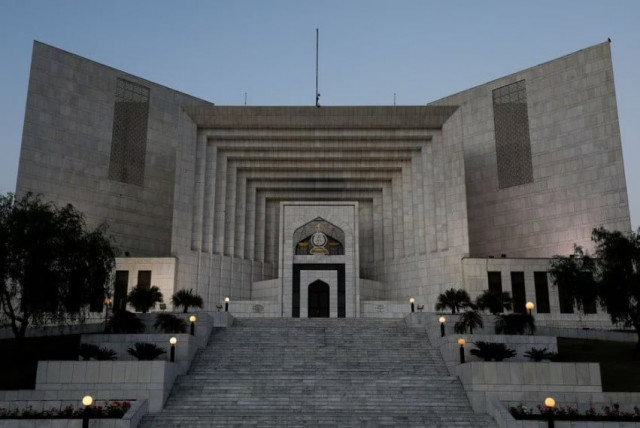SC assures open mind in Punjab poll order review
Asks ECP why it did not advise President Alvi to hold polls across country on same day

The Supreme Court has noted that it is hearing the Election Commission of Pakistan (ECP) review petition with an open mind and that the government’s “past” will not be used against it.
“We will not use the past against the government. We are sitting here to please Allah, not the government. We are sitting here after rendering many sacrifices,” Chief Justice of Pakistan (CJP) Umar Ata Bandial said on Wednesday while hearing the ECP’s review petition against the SC’s April 4 order.
A three-judge bench—led by CJP Bandial—on April 4 ordered the ECP to hold elections in Punjab on May 14 as it set aside an ECP notification to defer the polls till October.
While the parliament passed a resolution against the SC bench and later rejected a government bill seeking funds for holding polls in Punjab and Khyber Pakhtunkhwa (K-P) provinces, the ECP also filed a review petition in the SC against its April order.
As the three-judge bench also comprising Justice Ijazul Ahsan and Justice Munib Akhter resumed hearing of the case, Attorney General for Pakistan (AGP) Mansoor Awan came to the rostrum to respond to some of the observations made by the bench a day earlier.
“A day earlier, the court had asked why the points highlighted by the ECP in its review petition were not raised earlier,” he said. Awan also mentioned the SC’s remarks regarding the government being adamant about the 3-4 majority order.
“I want to say that the argument of elections in one province affecting National Assembly polls was put forward previously as well. We had also mentioned the majority judgment in our response,” he said.
“You should not worry. We are sitting here to hear you. If a reasonable point is raised, we will review it and take a decision,” the CJP told the AGP.
Read NA panel defies SC demand for record
During the hearing, the top judge noted that the ECP did not brief President Dr Arif Alvi about the security measures or allocation of funds for elections. He asked the ECP counsel why it did not advise President Arif Alvi regarding holding polls across the country on one day.
“Without mentioning the ground realities, more powers are being sought under Article 218(3) [of the Constitution],” he said. “When the Constitution gives powers, keep your eyes and mind open before using them.”
Article 213(3) of the Constitution empowers the ECP to organize and conduct elections by making arrangements that ensure polls are conducted honestly, justly, fairly and in accordance with the law.
Earlier, ECP lawyer Sajeel Swati resumed presenting his arguments. He highlighted that the SC always interpreted the Constitution as a “living document”.
“The ultimate institution of justice is the Supreme Court, therefore its scope cannot be limited,” he said. “No other court has the authority to dispense complete justice and use Article 190.”
The CJP asked Sawti if 150 years of court precedents had become ineffective.
“According to the 150 years of judicial precedents, there is a difference between the scope of review and appeal. You didn’t respond to this question yesterday as well.”
Justice Akhtar noted that if the ECP’s argument regarding the jurisdiction of a review and appeal was accepted, it would “nullify the Supreme Court rules”.
He said no amendments were made to the jurisdiction of review in the SC rules yet. “If jurisdiction is expanded, it will reopen cases dating back several years,” he noted. The court will resume hearing today.



















COMMENTS
Comments are moderated and generally will be posted if they are on-topic and not abusive.
For more information, please see our Comments FAQ